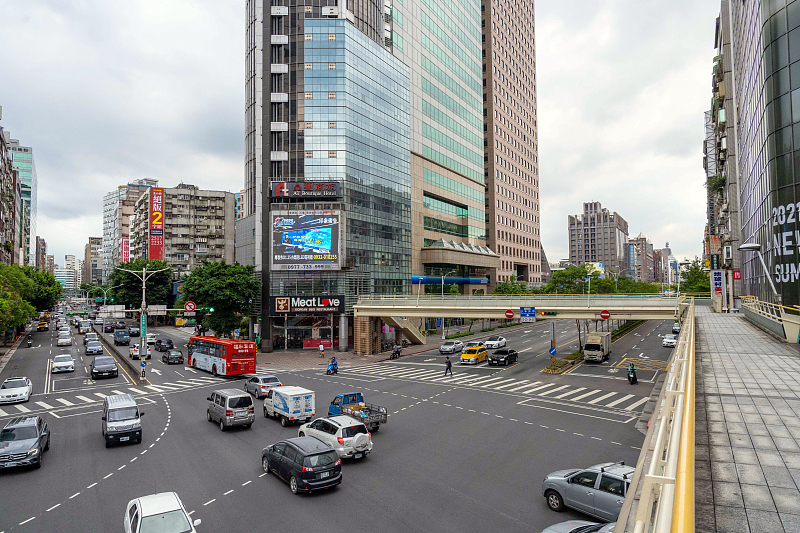
U.S. national flags are placed on the National Mall in Washington, D.C., the United States, September 22, 2020. /Xinhua
U.S. national flags are placed on the National Mall in Washington, D.C., the United States, September 22, 2020. /Xinhua
Editor's note: Abu Naser Al Farabi is a Dhaka-based columnist and analyst focusing on international politics, especially Asian affairs. The article reflects the author's opinions and not necessarily those of CGTN.
The yet-to-end pandemic has plunged hundreds of millions of people into poverty, with countries still struggling to recover from pandemic-induced economic wreckage. Ever-encroaching climate change is taking an ever-more monstrous mode with the bleak prospect of pushing the whole of humanity into an apocalypse. The war and Western sanctions have been wreaking havoc across the world, with inflation skyrocketing, debt distress piling up and prospects of another recession creeping nearer. In recorded history, human beings have never faced a situation more dire than today's, when multiple simultaneous crises have converged to form a single catastrophic cocktail that is devastating the planet as a whole. The urge for peace and the urgency for comprehensive planetary cooperation are more widely pronounced and imperative than at any time in history.
Ironically, amid such a widespread apprehension, and quite contrary to what the world is gearing up to, another frightening scenario is unfurling in Asia, being triggered by the self-proclaimed global guardian of peace and stability – the United States. A string of provocations being pressed hard by the U.S. has already turned the minimum status-quo dangling for decades across the Taiwan Strait into a precarious predicament, with every prospect of boiling over into a cataclysmic outburst.
Fanatically in a frenzied rush to contain China, the U.S. appears alarmingly unrestrained, waging every card at its disposal against China, primarily on Taiwan. A typical tactic in a large-scale power struggle like that during the Cold War is to capitalize on the adversary's internal disputes to one's own strategic advantage. And the U.S. is historically an old hand in wielding such a tactic against its rivals. To strategically cash in on the internal differences and disputes, the "Taiwan card" is a relatively handy one among many of this kind, given the pervasive presence of pro-Western pro-separatist forces in the Taiwan region.
Over the last few months, some egregious developments of the Taiwan Strait crisis are atypically alarming. Notable among them are the U.S. Senate Foreign Relations Committee's bipartisan approval of the controversial Taiwan Policy Act of 2022 and Joe Biden's straight remark on the U.S. policy shift toward China's Taiwan region.

A view of Taipei, southeast China's Taiwan, June 3, 2021. /CFP
A view of Taipei, southeast China's Taiwan, June 3, 2021. /CFP
In contravention of the U.S.'s agreed commitment to the one-China principle and the brazen violation of China's territorial integrity and sovereignty, the proposed act will drastically overhaul the U.S.'s long-standing policy posture on the Taiwan region, given the proposed elements of the Act – authorizing $4.5 billion in funding to China's Taiwan region through 2026, designating the island as a "major non-NATO ally" and so forth. On the other hand, Biden's very recent remarks, made while interviewed on the CBS news show 60 Minutes, that the U.S. would militarily defend Taiwan if any major military conflict broke out in Taiwan, is a clear incitement to the pro-independence separatists in China's Taiwan region.
We cannot even dare to dream of another superpower struggle between the U.S. and China sliding down into a large-scale conflagration when one far smaller in Europe has been taking unprecedented tolls across the world. Now, the question is: Why does the United States, even with the chilling prospect of civilizational risk, remain so dogged in its pursuit to contain China at the expense of a future holding ample prospect of peace and prosperity?
The answer is simple: Desperation out of ever-eroding primacy. The so-called American Empire is in decline and much-touted "American exceptionalism" doesn't hold as much appeal to the world as it did once. Its long-lavished unilateral hegemony increasingly faces multilateral frowns, the primacy is being challenged by emerging powers and the so-called universal liberal values are questioned with cynicism and wider skepticism. The political establishments are well aware of the fact that the future of the capitalistic military machine hinges on the very continuance of hegemonic global primacy.
Historically, empires have proved more dangerous in their decline than at their pinnacle. Never has the U.S.'s global hegemony been challenged as much as it has been now by the predominant rise of China with a vision of a multilateral world order governed by international rules and laws, not by ones consigned to serve privileged particulars. This is exactly what has made the U.S. so desperate, prompting it to employ an all-out strategic assault against China on multiple fronts: Provoking separatism in China's Taiwan region, smearing campaigns over China's Xinjiang Uygur Autonomous Region and Tibet Autonomous Region, and whipping up bloc politics in Asia and beyond.
The cost of such desperation will be insurmountable, enough to draw an end to human civilization. We haven't seen even a minimum let-up on its devastating hegemony-salvaging march. It could be because a wounded tiger turns out to be a more dangerous beast.
(If you want to contribute and have specific expertise, please contact us at opinions@cgtn.com. Follow @thouse_opinions on Twitter to discover the latest commentaries in the CGTN Opinion Section.)

